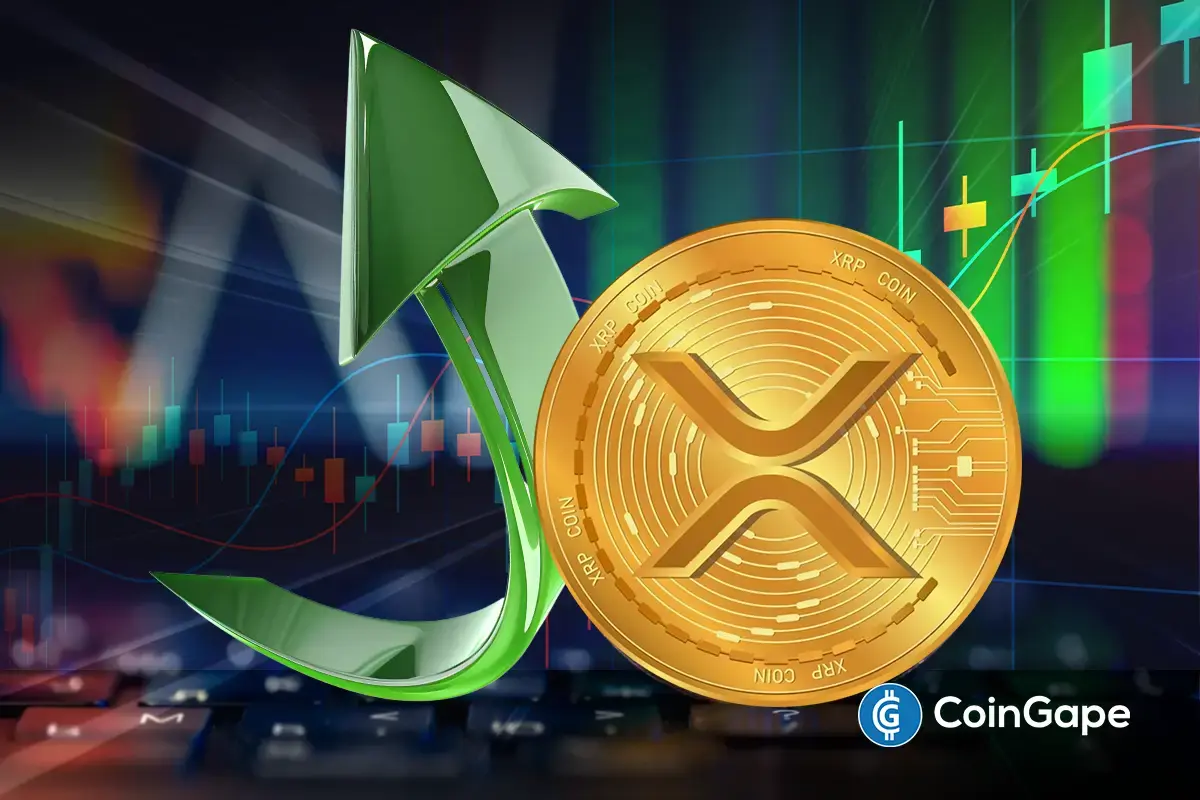Regulation
Coinbase CEO Blames Gensler & Warren for Costing Kamala Harris the US Election

Coinbase CEO Brian Armstrong has called out SEC Chairman Gary Gensler and Senator Elizabeth Warren as the reason for Democratic ticket hopeful, Kamala Harris losing the 2024 US presidential election.
Brian Armstrong’s comments indicate that the Biden administration’s regulation of cryptocurrency, spearheaded by Gensler and Warren, damaged the Democratic Party’s chances at the polls.
Coinbase CEO Stance on Gary Gensler & Senator Warren
In an X (formerly Twitter) post, Coinbase CEO Brian Armstrong highlighted how the actions of SEC chair Gary Gensler and Senator Elizabeth Warren negatively affected the crypto space which was backed by tech industry and young people. Armstrong stated that the rigidity of the stance on cryptocurrency especially the regulation environment under Gensler made many innovators and tech supporters turn against the Biden administration.
Armstrong said that Senator Warren and Chairman Gensler attempted to “unlawfully kill our entire industry” claiming that there has been a clear effort to undermine the operations of crypto businesses and by extension technological advancement. He noted that the very crackdown on Ripple and other firms eroded the support of the voters who voted for cryptocurrency as a tool for economic growth and freedom especially among the young people and technology influencers.
The discussion escalated when personalities like Marc Andreessen, founder of Mosaic web browser, and Elon Musk expressed similar opinions. Andreessen mentioned the issue of debanking which affects many tech and crypto business people, pointing out that about 30 tech founders have been barred from banking services otherwise related to their business activities. Elon Musk, who has made numerous statements on various political topics, shared his thoughts on the matter on Twitter, pointing at the possible involvement of financial institutions and regulatory authorities in aiming at innovative industries such as cryptocurrencies.
Role of Elizabeth Warren in Crypto Regulation
Cryptocurrency has always been a subject of concern for Senator Elizabeth Warren. She has called for more stringent measures in the industry due to concerns over customer protection and sustainability.
Nevertheless, according to Brian Armstrong and others, her policies have been detrimental for the overall tech industry. They accused Warren of creating a culture of regulation overreach that hampered innovation and discouraged investment from young entrepreneurs and tech startups that were crucial to the party.
Some of the critics of Warren have accused her of being against the growth of decentralized cryptocurrencies, especially among those who view it as a means of advancing financial inclusion and economic freedom. From Armstrong’s perspective, the adverse impacts of this regulatory environment seem to have potentially influenced a shift in voter perception, and therefore affected the Democratic Party in the election that led to the victory of Donald Trump.
Armstrong’s social media posts also included a warning for the Democratic Party:
“The Democratic Party should realize Warren is a liability and further distance themselves if they want to have any hope of rebuilding.”
Meanwhile, with SEC Chair Gary Gensler stepping down from his position on January 20, 2025, and Trump’s administration planning to create a dedicated position to oversee crypto policy, hopes of better crypto regulations have risen significantly.
Disclaimer: The presented content may include the personal opinion of the author and is subject to market condition. Do your market research before investing in cryptocurrencies. The author or the publication does not hold any responsibility for your personal financial loss.
Regulation
Kraken Obtains Restricted Dealer Registration in Canada

Cryptocurrency exchange Kraken has obtained a Restricted Dealer registration in Canada. The registration comes after completing a pre-registration undertaking (PRU) process with Canadian authorities.
The exchange has also announced the appointment of Cynthia Del Pozo as its new General Manager for North America. Del Pozo will oversee Kraken’s growth initiatives in Canada.
Kraken Completes PRU Process In Canada
Kraken’s Restricted Dealer registration marks the completion of a thorough pre-registration undertaking (PRU) process with Canadian regulators. The registration places Kraken under the supervision of the Ontario Securities Commission (OSC). This oversight ensures users have access to secure crypto products within a properly regulated local ecosystem.
According to the Canadian Securities Administrators (CSA), the Restricted Dealer registration is one of eight firm registration types in Canada. This particular classification is used for firms that “do not quite fit under any other category.” It also comes with specific requirements and conditions set by securities regulators.
Kraken’s regulatory achievement comes during a period of change in the Canadian crypto sector. Just months earlier, competitor Gemini exchange announced its departure from the Canadian exchange market by the end of 2024. This was a move that surprised many and raised questions about cryptocurrency regulation clarity in the country.
Kraken Introduces New Canadian GM
Del Pozo has joined Kraken to lead its Canadian operations as the new General Manager for North America. She has nearly 15 years of experience in corporate development, operations, and fintech consulting. Del Pozo will help to guide Kraken’s expansion across Canada during this important phase of crypto’s development in the region.
“Canada is at a turning point for crypto adoption, with a growing number of investors and institutions recognizing digital assets as a vital part of the financial future. I’m thrilled to join Kraken’s mission at this critical moment, and to lead our expansion efforts, ensuring we continue to serve our clients long-term with innovative and compliant products,” said Del Pozo.
In her role, Del Pozo will focus on strengthening Kraken’s regulatory relationships and also scaling the company’s presence throughout North America.
Del Pozo also commented on the registration achievement: “This Restricted Dealer registration is testament to the high bar Kraken has always set for consumer protection, client service, and robust security. We’re excited to continue expanding our world-class investment platform and to deliver innovative products that provide real-world utility to Canadians.”
The Exchange’s Continued Growth In Canada
Over the past two years, the cryptocurrency exchange has shown steady expansion in Canada while working through the PRU process with regulators. During this period, the exchange has doubled its team size and monthly active users.
According to the official blog post figures, the firm now has more than $2 billion CAD in total client assets under custody. Kraken has also increased support for some of the most popular cryptocurrencies. It provides several CAD spot trading pairs that enable Canadians to trade crypto without paying expensive foreign exchange fees.
According to Innovative Research Group’s 2024 Investor Survey, 30% of Canadian investors currently own or have owned cryptocurrencies. Likewise, a KPMG Canada survey discovered that 30% of Canadian institutional investors now have exposure to cryptocurrencies, which means widespread adoption across investor types.
Disclaimer: The presented content may include the personal opinion of the author and is subject to market condition. Do your market research before investing in cryptocurrencies. The author or the publication does not hold any responsibility for your personal financial loss.
Regulation
USDC Issuer Circle Set To File IPO In April, Here’s All

USDC issuer Circle is reportedly set to file its initial public offering (IPO) in April as part of the firm’s plans to finally go public. The stablecoin issuer is allegedly already working with top financial institutions to achieve this move.
Circle To File IPO In Late April
According to a Fortune report, Circle is looking to file its IPO in late April, although the listing period remains uncertain. The report noted that when a company files to go public, its shares usually begin trading four weeks later, indicating that the listing could occur in May. However, there is also a scenario where the IPO process could drag on for months.
The stablecoin issuer is reportedly working with investment banks JPMorgan Chase and Citi to achieve its long-anticipated IPO. The firm had previously tried to go public in 2021 under a SPAC arrangement with a shell company.
The US SEC failed to sign off on this arrangement back then, and the company eventually scrapped these IPO plans by the end of 2022 when the crypto exchange FTX collapsed and the broader crypto market experienced a downturn.
Revelation about Circle’s IPO plans comes just days after the stablecoin issuer partnered with NYSE’s parent company to explore USDC’s use in traditional finance (TradFi). Meanwhile, the USDC stablecoin recently launched in Japan following approval from the country’s regulator. Notably, USDC is the first and only global dollar stablecoin approved under Japan’s stablecoin framework.
An Easier Path Now For The Stablecoin Issuer
Circle will likely face less resistance for its IPO plans under the current SEC administration. Under acting Chair Mark Uyeda, the Commission has shown its willingness to work hand in hand with crypto firms, which was missing under Gary Gensler’s administration.
US SEC Chair nominee Paul Atkins has also shown his willingness to change the approach that Gensler’s administration adopted towards crypto firms. During his nomination hearing, the SEC Chair nominee promised to prioritize providing regulatory clarity for the industry.
Circle’s IPO listing would be the biggest since the top crypto exchange Coinbase went public in 2021. Interestingly, Coinbase owns an equity stake in the crypto firm.
The firm’s USDC is currently the second-largest stablecoin by market cap, only behind Tether’s USDT. The stablecoin industry is heating up as more financial institutions look to develop their own stablecoin.
Donald Trump’s World Liberty Financial recently revealed plans to launch its USD1 stablecoin, while asset manager Fidelity is also considering doing so.
Disclaimer: The presented content may include the personal opinion of the author and is subject to market condition. Do your market research before investing in cryptocurrencies. The author or the publication does not hold any responsibility for your personal financial loss.
Regulation
Japan Set To Classify Cryptocurrencies As Financial Products, Here’s All

Cryptocurrency investors in Japan are bracing for impact following a plan to reclassify digital assets as financial products. While the plan has elicited excitement from cryptocurrency enthusiasts in the Far East, the ambitious plan will have to scale several legislative hurdles.
Japan Targets Reclassification Of Cryptocurrencies As Financial Products
According to a report by Nikkei, Japan’s Financial Services Agency (FSA) is inching toward classifying cryptocurrencies as financial products. Per the report, the FSA intends to achieve the reclassification via an amendment to the Financial Instruments and Exchange Act.
Currently, digital assets in Japan are considered crypto assets conferred with property rights and seen as payment means. Under the FSA’s plans, cryptocurrencies in Japan will be treated as financial products in the same manner as traditional financial products.
The FSA says it will adopt a slow and steady approach toward the reclassification, carrying out “a private expert study group” to test the waters. If everything goes according to plan, the FSA will submit the amended bill to Parliament in early 2026.
The classification of cryptocurrencies as financial products will have far-reaching consequences for the local ecosystem. Experts say treating cryptocurrencies as financial products will bring Japan closer to a crypto ETF launch amid a changing regulatory landscape.
Furthermore, the move may lower current cryptocurrency taxation for local investors since existing capital market rules will apply to the asset class.
A Fresh Bill For Crypto Insider Trading Is Underway
Apart from the reclassification, the FSA disclosed plans for new legislation against insider trading. The move flows treating cryptocurrencies as financial products and will strengthen existing investor protection rules.
“It is a direction to establish a new insider trading regulation that prohibits trading based on unpublished internal information,” said the FSA. “We will develop laws to prevent unfair transactions.”
However, Japan’s cryptocurrency scene is heating up to a boil, driven by local and international players. Last week, stablecoin issuer Circle secured approval from the FSA for USDC with top exchanges set to list the stablecoin.
Japan’s Metaplanet has tapped Eric Trump to join its Strategic Board of Advisors as it continues to load up Bitcoin.
Disclaimer: The presented content may include the personal opinion of the author and is subject to market condition. Do your market research before investing in cryptocurrencies. The author or the publication does not hold any responsibility for your personal financial loss.
-

 Altcoin21 hours ago
Altcoin21 hours agoHere’s Why This Analyst Believes XRP Price Could Surge 44x
-

 Altcoin16 hours ago
Altcoin16 hours agoFirst Digital Trust Denies Justin Sun’s Allegations, Claims Full Solvency
-

 Ethereum18 hours ago
Ethereum18 hours agoWhy A Massive Drop To $1,400 Could Rock The Underperformer
-

 Altcoin20 hours ago
Altcoin20 hours agoHow Will Elon Musk Leaving DOGE Impact Dogecoin Price?
-

 Altcoin17 hours ago
Altcoin17 hours agoWill Cardano Price Bounce Back to $0.70 or Crash to $0.60?
-

 Ethereum20 hours ago
Ethereum20 hours agoWhales Dump 760,000 Ethereum in Two Weeks — Is More Selling Ahead?
-

 Market9 hours ago
Market9 hours agoXRP Price Under Pressure—New Lows Signal More Trouble Ahead
-

 Altcoin9 hours ago
Altcoin9 hours agoAnalyst Forecasts 250% Dogecoin Price Rally If This Level Holds
























✓ Share: